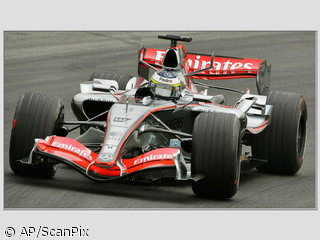A growing number of online companies are ambushing competitors through software that puts ads where marketers want them most--in front of customers visiting rival Web sites.
Published:
7 August 2001 y., Tuesday
It's called getting "Gatored," after one of the most popular applications underlying it, and some Web sites are out to restrict the practice. But for others it's fast becoming an effective way to feast on competitors in their own front yard.
One e-tailer that's been bitten is 1-800-Flowers.com. When certain Web surfers visit the site to browse for bouquets, a pop-up ad appears for $10 off at chief rival FTD.com. The same sort of thing happens at AmericanAirlines.com, where a Delta Air Lines promotion is waiting in the wings.
Ads like these find their way onto browser windows through "plug-ins" that come bundled with certain software downloads. Several companies are behind the practice, including the eponymous Gator.com.
One online executive referred to Gator and other such programs as "hijackware," applications that easily whisk consumers from a point of sale at one site to a competitor’s site.
Gator is a so-called online helper application that has millions of active users and manages passwords and user IDs. While Gator is free, the company that makes it sells keywords to marketers that lets them launch pop-ups at opportune moments--for example, when a Web surfer visits a competing site.
Redwood City, Calif.-based Gator is quickly adding a new spin to the old ploy of selling ad space linked to trademarks and company names. Pioneered by search engines and Net directories, the practice lost momentum after some big brand advertisers cracked down with boycotts and trademark lawsuits. One case involving Playboy Enterprises, scheduled for trial next month in Los Angeles, could help set guidelines over the legality of the practice.
Fears about control of keywords have resurfaced recently, with critics pointing to blurring lines between content and advertising on the Web. In one extreme example, San Francisco-based eZula has been working with file-sharing networks Kaazaa and iMesh to superimpose links to marketers' sites over text on Web pages.
But including links to preferred Web destinations could rally a cry of foul play. Microsoft last month pulled--at least temporarily--Smart Tags from Internet Explorer 6. The Extensible Markup Language (XML) feature let Web surfers use pull-down menus to obtain additional information about select content. A Smart Tag under CNET, for example, might have linked to Microsoft's MSN MoneyCentral Web site for stock quotes and other information.
Šaltinis:
CNET News.com
Copying, publishing, announcing any information from the News.lt portal without written permission of News.lt editorial office is prohibited.
The most popular articles
Software company announced new structure_ of it_s business.
more »
 The Self-Service and Kiosk Association has published its 2009 Self-Service Consumer Survey, a comprehensive report that reveals what consumers like and dislike about self-service technology — and what they want more of.
more »
The Self-Service and Kiosk Association has published its 2009 Self-Service Consumer Survey, a comprehensive report that reveals what consumers like and dislike about self-service technology — and what they want more of.
more »
 Private investors should hold up to 15 percent of their wealth in physical gold, according to a German asset-management company that plans to set up 500 "Gold-To-Go" ATMs in Germany, Switzerland and Austria sometime this year.
more »
Private investors should hold up to 15 percent of their wealth in physical gold, according to a German asset-management company that plans to set up 500 "Gold-To-Go" ATMs in Germany, Switzerland and Austria sometime this year.
more »
 ATM and debit card theft is expected to grow 10 percent to 14 percent this year, according to a survey of financial institutions that was released today.
more »
ATM and debit card theft is expected to grow 10 percent to 14 percent this year, according to a survey of financial institutions that was released today.
more »
 Built from potatoes, steered with carrots and powered by chocolate.
more »
Built from potatoes, steered with carrots and powered by chocolate.
more »
 Students at a Tokyo elementary school are waiting quietly for a "special lecturer" in science class. But when they see "Saya", a robot relief teacher, the kids are pleasantly surprised.
more »
Students at a Tokyo elementary school are waiting quietly for a "special lecturer" in science class. But when they see "Saya", a robot relief teacher, the kids are pleasantly surprised.
more »
 This week - the New York Times announced a deal with e-commerce giant Amazon timed to the release of its latest Kindle e-book device.
more »
This week - the New York Times announced a deal with e-commerce giant Amazon timed to the release of its latest Kindle e-book device.
more »
 Wincor Nixdorf AG and NICE Banking, an independent ATM deployer in South Korea, have partnered to grow a network of ATMs at sites owned by the country's top communications provider, Korea Telecom.
more »
Wincor Nixdorf AG and NICE Banking, an independent ATM deployer in South Korea, have partnered to grow a network of ATMs at sites owned by the country's top communications provider, Korea Telecom.
more »
 “The telecoms package has never been about anything to do with restrictions on the internet,” Malcolm Harbour told us ahead of Parliament's debate Tuesday on the telecoms package, which aims to reform the existing European electronic communications framework.
more »
“The telecoms package has never been about anything to do with restrictions on the internet,” Malcolm Harbour told us ahead of Parliament's debate Tuesday on the telecoms package, which aims to reform the existing European electronic communications framework.
more »
 On 20 April 2009 the Prague Congress Centre will host a ministerial conference Safer Internet for Children, which is organised by the Ministry of the Interior in cooperation with the European Commission.
more »
On 20 April 2009 the Prague Congress Centre will host a ministerial conference Safer Internet for Children, which is organised by the Ministry of the Interior in cooperation with the European Commission.
more »
 Payment card breaches in 2008 led to the most compromises and security breaches of record in the last four years, according to a new report from Verizon Business.
more »
Payment card breaches in 2008 led to the most compromises and security breaches of record in the last four years, according to a new report from Verizon Business.
more »